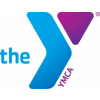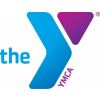What does a Sports Instructor do?
1 Answer(s)
Top Answer
Answering what a Sports Instructor does is much more straightforward when you factor in the sport or activity they instruct. However, a Sports Instructor is generally responsible for planning and leading sporting activities and events. They may work with individuals or in group sessions of all ages and abilities.
A fundamental part of the job is planning and conducting teaching and training sessions with their clients. Individual lesson plans will differ depending on the client's skill level, the approach when explaining and demonstrating techniques and strategies, and the use of specialized equipment.
Sports Instructors will often organize friendly competitions with other teams, scout for new players if needed, and make travel arrangements. Their innate teaching abilities make explaining the rules, principles, and safety procedures of the sport more than easy for clients to understand. They are also responsible for tending to injured athletes and requesting necessary medical assistance.
A Sports Instructor typically works regular hours, although they may be required to work evenings and weekends to accommodate their students' schedules.
Roles and responsibilities of a Sports Instructor
Here's a non-exhaustive list of everyday tasks Sports Instructors are required to complete:
A fundamental part of the job is planning and conducting teaching and training sessions with their clients. Individual lesson plans will differ depending on the client's skill level, the approach when explaining and demonstrating techniques and strategies, and the use of specialized equipment.
Sports Instructors will often organize friendly competitions with other teams, scout for new players if needed, and make travel arrangements. Their innate teaching abilities make explaining the rules, principles, and safety procedures of the sport more than easy for clients to understand. They are also responsible for tending to injured athletes and requesting necessary medical assistance.
A Sports Instructor typically works regular hours, although they may be required to work evenings and weekends to accommodate their students' schedules.
Roles and responsibilities of a Sports Instructor
Here's a non-exhaustive list of everyday tasks Sports Instructors are required to complete:
- Explain and teach the basic principles, fundamentals, rules, safety procedures, and the technical language of a sport.
- Demonstrate the proper use of equipment.
- Provide examples of techniques performed in a competition.
- Provide training and instruction on the sport.
- Encourage, motivate, and prepare participants.
- Plan and organize training sessions.
- Conduct physical conditioning sessions to maximize performance.
- Share tips to improve performance (e.g., ways to move hands, feet, or body).
- Adjust coaching techniques to better fit athletes and students.
- Evaluate students' and athletes' performance.
- Assess and handle injuries according to first aid training and policy.
- Monitor the proper use of equipment.
- Plan and develop new strategies.
- Analyze the opposing team's performance to find ways to counter their strengths.
- Inspect the proper functioning and maintenance of equipment.
- Check equipment for any malfunction.
- Repair equipment when possible.
- Acquire new equipment when necessary.
- Organize and plan competitions and other activities.
- Make transportation arrangements when necessary.
- Request parents' permission to travel.
- Arrange other sport-related activities (e.g., fundraisers, clinics, and tryouts).
- Recruit new and promising athletes and promote their services.
Related Jobs





